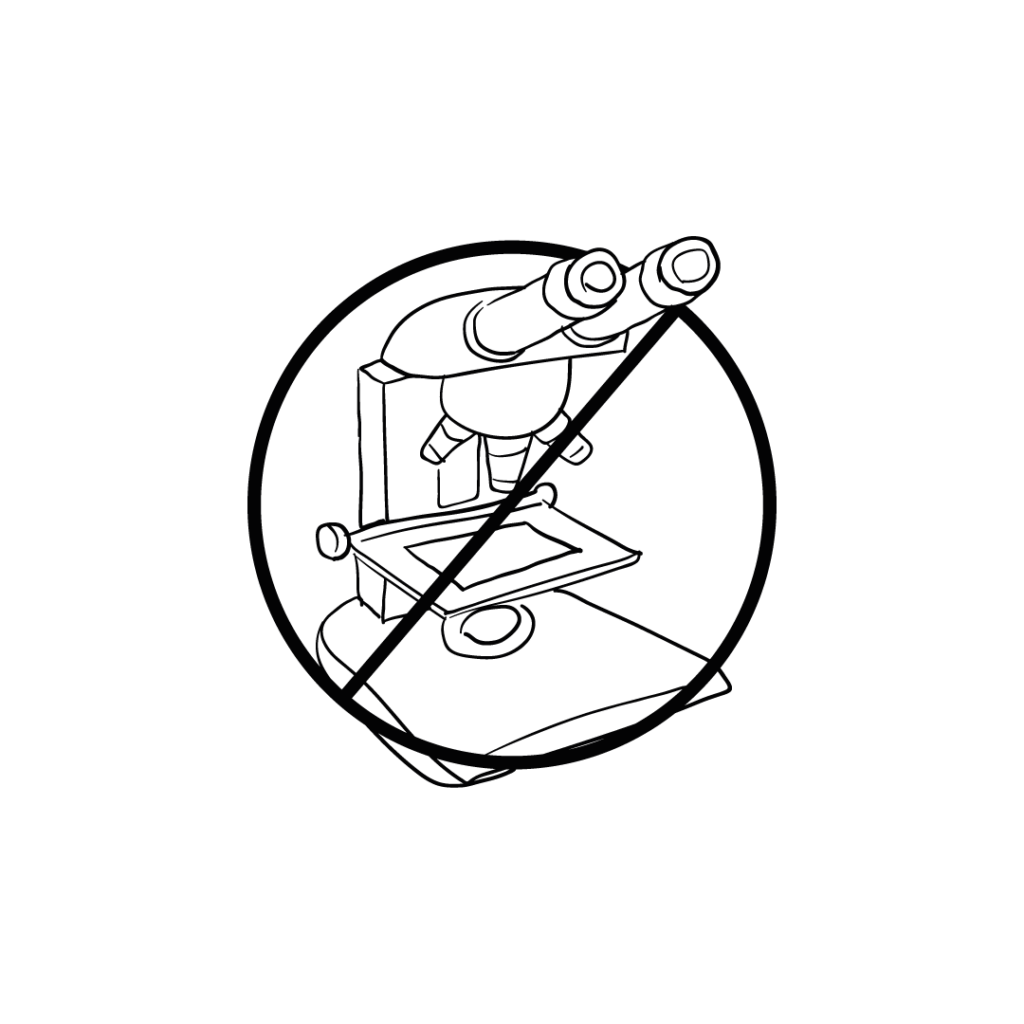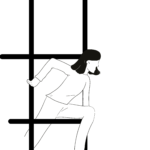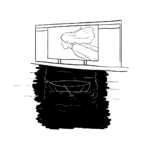THE IMPACT OF THE LACK OF LABORATORIES AND EQUIPMENT ON LEARNING
The lack of laboratories in schools is a problem for all subjects and especially for subjects such as; physics, biology and chemistry. These subjects in comparison to other subjects have more of a need for equipment and laboratories because the different physical, chemical biological processes and chemical reactions are part of these subjects that cannot only be explained in theory.
Illustration: Argjira Kukaj

We all know that education in Kosovo has a lot of flaws, starting from the objects that are in a very bad state, up to the school textbooks which are overfilled with materials that is often overly complicated, with mistakes and hard to comprehend by many students. But another very important problem is also the lack of laboratories and equipment that help so that the learning process is as comprehensible as possible. This lack shows a problem for all subjects and especially for subjects such as; physics, biology and chemistry. These subjects compared to other subjects have more of a need for equipment and laboratories because of the different physical, chemical and chemical reactions that are part of the subjects that can not only be explained in theory.
Jerina, a second year high school student, says that the lack of practice in school presents a problem in learning and teaching.
“I attend studies in the science field, and for me it’s very difficult to lock on to subjects that require practice because those subjects are only imaginary to us. In most cases we must look for practical videos on the internet and better comprehend our studies, so i think that this is the main reason that we as students get behind on learning, since we learn everything that’s written on the book in a mechanical way.
By learning something “imaginary”, which is very difficult to understand only in theory also causes a lack of interest in students”, she says. With creating the right conditions for every subject, students’ interest and the class would be on a higher level.
While Jerina says that the biggest difficulties are in chemistry and biology since the collection of learning materials in these subjects and the lack of practical examples in class makes the students find a “solution” in learning by memorization.
And Dreni, now a first year student in the computer sciences field says that practical learning has always been a big problem for learning the lessons for him and many other students.
“I remember in 6th grade when the biology teacher had taken the school microscope with her, and had said that we’d be looking at a piece of onion. This is maybe one of the simplest things in biology, but for us it was something entirely new and impressive, because it was the first time we had seen something at a microscopic level”, says Dren.
These difficulties are not only being faced by the students but also the teachers. The “Remzi Ademaj” high school professor, Reshat Reshiti, says that the school he works in has only elementary tools of work, but not for sciences.
“It’s necessary for schools to have laboratories for practice, cabinets for technology class and arts. The practical part is very important because you cultivate critical thinking to learn new knowledge, skills and work competences”, says Reshiti.
Even subjects such as physical and sports education and musical education have lost their importance as subjects because of the many flaws in our schools. Even though physical activities are very useful in our daily life, in our schools in general physical education is one of the subjects that is least paid attention to.
Besides the many flaws in equipment in the physical education subject, even that few equipment that are found are old and unusable. But the lack of equipment is not the main problem, since in many schools there isn’t even a gym for phys. Ed, while this subject is conducted either in the school yard or in class, where none of them is the right choice.
On the other side, musical education is also a very important subject which unfortunately isn’t paid much attention to. Instead of developing the musical education class with listening and singing to songs, in our schools this subject is developed only in theory. So, instead of musical education we learn music history.
Then when the necessary criteria can be fulfilled in our school objects and that which we learn in theory is practiced, the students’ interest will be larger and we’ll have a qualitative education.
About the author: Njomza Jëlliqi, 18-year old from Prizren, has finished high school.
This grant is supported by the ‘Civil Society programme for Albania and Kosovo’, financed by the Norwegian Ministry of Foreign Affairs and managed by Kosovar Civil Society Foundation (KCSF) in partnership with Partners Albania for Change and Development (PA). The content and recommendations do not represent the official position of the Norwegian Ministry of Foreign Affairs and Kosovar Civil Society Foundation (KCSF).


